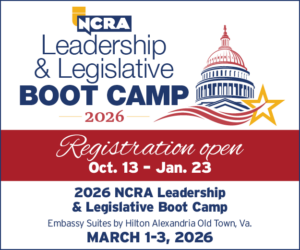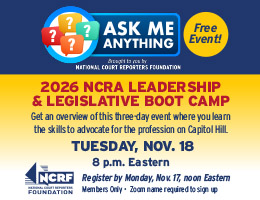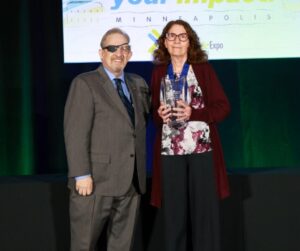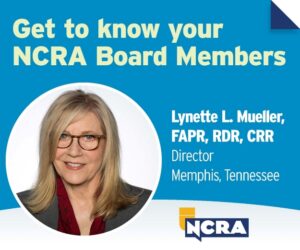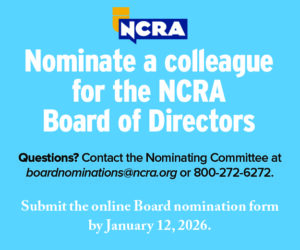U.S. Rep. Frank Guinta (N.H.) recognized the 2016 National Court Reporting & Captioning Week, being celebrated Feb. 14-20, in a floor speech at the U.S. House of Representatives in Washington, D.C., on Feb. 12.
The national, weeklong celebration is sponsored by the National Court Reporters Association (NCRA) the country’s leading organization representing stenographic court reporters, broadcast and CART captioners, and legal videographers. The event is designed to highlight the contributions of stenographic court reporters and captioners to society and to showcase the growing number of career opportunities that exist in the court reporting and captioning fields.
In his remarks, Rep. Guinta thanked the hundreds of court reporters and captioners within his home state of New Hampshire, as well those working in the profession across the country.
“The New Hampshire Court Reporters Association recently celebrated its 30th anniversary. But the profession’s history in the United States extends much farther. Because of court reporters, we have an accurate record of the first days of our country, as our Founding Fathers drafted the Declaration of Independence and the Constitution,” he said.
“I’d like to thank court reporters and captioners for their service, enabling public participation in our democracy, a cornerstone of representative government in the United States.”
Rep. Guinta also noted that court reporters and captioners are highly specialized professionals, who record the nation’s most important public events and provide vital closed captioning services to nearly 48 million Americans who are deaf and hard of hearing.
“My own parents met in court reporting school and went on to start a successful small business. The training is rigorous. Certification requires one’s ability to type at a rate of 225 words per minute. A court reporter is transcribing this very moment in Congress,” he noted.
“National Court Reporting & Captioning Week is an opportunity to showcase the valuable work our members do to preserve vital records for historical purposes,” said NCRA President Stephen A. Zinone, RPR, an official court reporter from Pittsfield, N.Y.
“Our profession dates back to 3500 B.C. with the Sumerians who recognized the importance of preserving thought and created written literacy. Then in 63 B.C., the time of Cicero and Tiro, the scriveners developed the first shorthand system to record official Roman Senate proceedings, ensuring that the times of the Roman Empire were recorded for future centuries. Just like the history of our great country is worth celebrating, so too is the history of our time-honored profession,” Zinone said.
“The 2016 event marks the fourth year we have nationally celebrated our profession, and with each year the participation by our members, state associations, and court reporting schools has steadily grown, helping to spread public awareness of the court reporting and captioning professions. NCRA’s Take Note Campaign has complemented this commemorative week as well by successfully raising awareness of the many benefits and employment opportunities the profession offers,” he added.
NCRA’s Take Note campaign is based on an industry-wide outlook report conducted by an independent research firm that determined that there is a growing need for qualified people to fill jobs coming open in the court reporting and captioning fields.
National Court Reporting & Captioning Week is being marked with promotional events and marketing efforts nationwide, including a grassroots social media campaign, presentations at high schools across the country about court reporting and captioning career opportunities, and community demonstrations such as producing transcripts of veterans’ oral histories. NCRA hosted the first National Court Reporting & Captioning Week in 2013.
For more information, visit NCRA.org. Career information about the court reporting profession—one of the leading career options that do not require a traditional four-year degree—can be found at crTakeNote.com.
